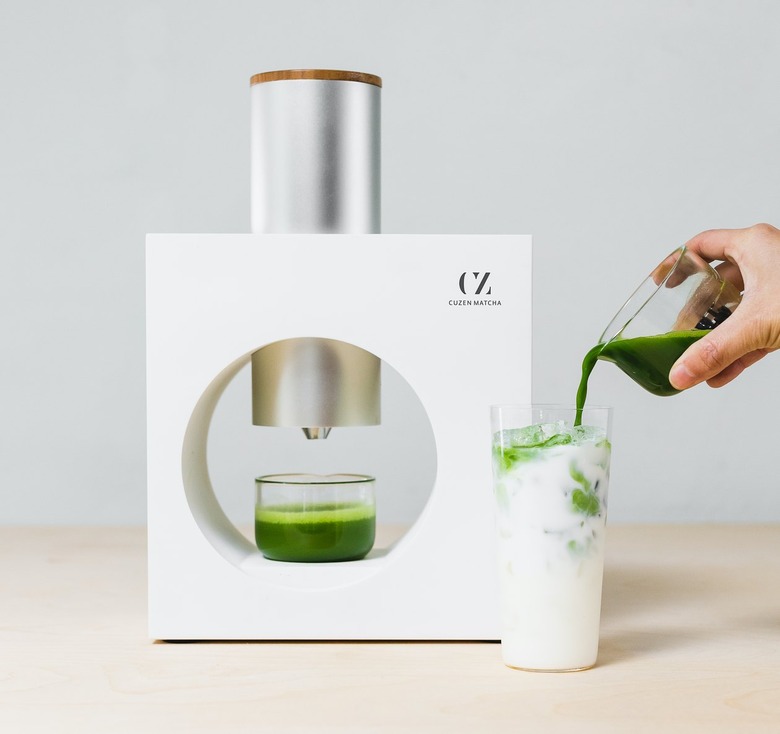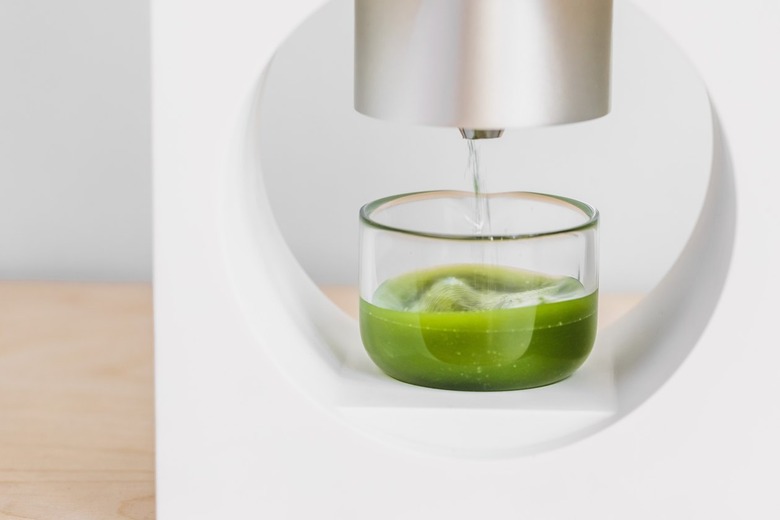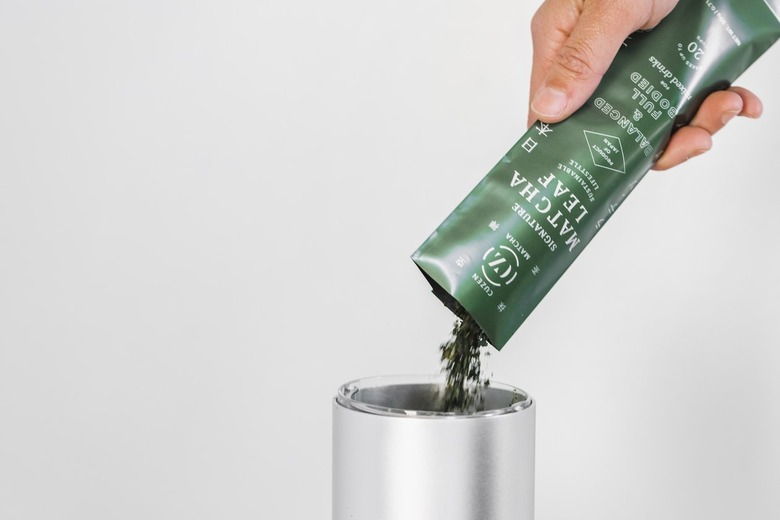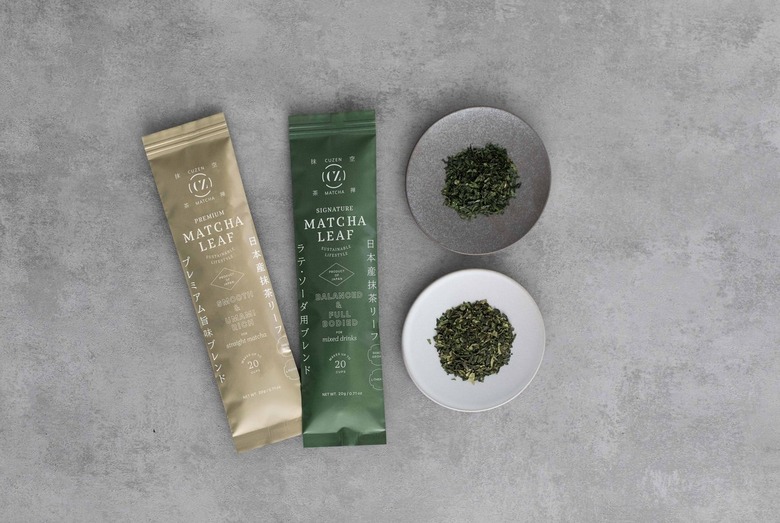I Tried This Matcha Machine That Does All The Work For You
During the pandemic, I started looking for ways to recreate some of my favorite drinks at home. And I started drinking matcha regularly, too. Thanks to pandemic-fueled anxiety dreams and the general news every day, it was pretty common to not get a good night's rest in those first few months. Plus, I love the taste of matcha. So I started trying my luck at making my own lattes.
Turns out there are plenty of tools out there to step up your latte game, from something as small as a milk frother to larger additions like the Cuzen Matcha, a machine designed specifically to ground fresh matcha. The Matcha packets are full of, as the brand explains, "shade-grown organic Japanese tea leaves." (Disclaimer: I received a Cuzen Matcha machine for review but that did not influence the thoughts below.)
Basically, the machine uses a ceramic mill to grind the leaves. You pour the leaves into the top (one 20g packet fits in the machine, and stays fresh up to one month), pour cold or room temperature water into the cup (with magnetic whisk) to the fill line, and then choose your desired strength. You can pick from three levels, each one 1g, 1.5g, or 2g of matcha. Then, you hit start and the matcha magic begins.
I was impressed by how finely the leaves were ground. When I first started whisking matcha by hand, it took me a minute to figure out the best way to make it without getting clumps in the bottom. The best way, for me, is to use a filter spoon, but that adds one more step (and one more dish to clean). The Cuzen matcha was smooth and you could hardly see the powder; I only noticed a little when I mixed in the milk and honey, but that disappeared after I gave it a good stir.
The machine can also just ground matcha powder on its own, for all your baking and cooking needs. It was definitely nice to set it and forget it — and not have a ton of dishes to clean afterwards.
The one downside is that this matcha mix didn't feel quite as strong caffeine-wise to other matcha powders I've tried. Also, I am not one of those people who is good at LEGOs or building IKEA furniture. It was a learning curve for me when it came to putting it together — both the first time and after I cleaned the parts. At one point, I got an error message and tried to pull things out but spilled a ton of leaves. I would recommend watching all these instructional videos before you even get started.
And keep in mind: It's an investment. Cuzen Matcha's starter kit, which includes two Signature packets and one Premium packet, retails for $369. That makes it slightly more pricey than a very basic espresso machine, but less expensive than one with all the bells and whistles.
And if you're into a more granular cost analysis, I'd say I typically spend around $6 to $7 on a matcha latte with a non-dairy milk from a café. When I make them at home, a $30 container of matcha powder might last me a month or two, depending on how often I make them. That's around $360 a year if I get one container each month. And if you were to buy yourself two matcha lattes a week from a coffee shop, that's about $624 a year (if we're counting at 52 weeks per year).
Once you run out of the matcha leaf itself, you'll need to buy refills — and the brand recommends buying it only from the Cuzen site, so the machine doesn't clog. A Signature leaf packet retails for $20 while the Premium leaf packet — made for mixing with other ingredients, like in a latte recipe — goes for $30.
If you're serious about not buying matcha from a coffee shop, and you like the flavor profile of this freshly ground matcha, it might be worth considering. It would also make a very good, fancy gift for someone you care about. Time to go pour myself another cup.



